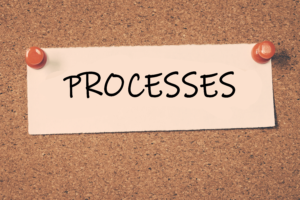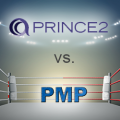
PRINCE2 is one of the world’s main project management certifications. It was developed by the UK government, and continues to be administered by Axelos, a company that is still partially owned by the UK government. Certification is a requirement of bidding on some UK government projects.
Hence, PRINCE2 is most prominent in the UK. But although 44% of PRINCE2 certification holders are in the UK, it is growing by double digits outside of the UK, especially in India, Australia, and North America.
There are two levels of certification in PRINCE2:
- PRINCE2 Foundation
- PRINCE2 Practitioner
A third, PRINCE2 Professional, was retired in 2017.
PRINCE2 Foundation
This is the first, and lowest, level of certification in the PRINCE2 system. It’s the entry level certification designed to:
- Confirm that you know and understand the PRINCE2 method well enough to be able to work effectively with, or as a member of, a project management team in an environment supporting PRINCE2. – Axelos web site
It would be considered equivalent to a Certified Associate in Project Management (CAPM) or a level D in the International Project Management Association (IPMA) certification scheme.
There is no education requirement, such as a bachelor’s degree or technical diploma. There is also no previous project management experience required.
In addition, there is no requirement to take any courses. One could read the manual and register for the exam once you felt knowledgeable enough in the PRINCE2 method.
The minimum cost of PRINCE2 Foundation certification consists of the following items:
- The manual. The official PRINCE2 manual is called Managing Successful Projects with PRINCE2, and it costs £85 (USD$110) at the Axelos web site.
- The exam. The official exam provider is PeopleCert, who charges £240 (USD$314) at the time of this writing. There are a number of course providers which allow you to take a 2-3 day course (or online course) and write the exam as part of the course.
PRINCE2 Practitioner
This is the main, or primary certification in the PRINCE2 system. It is designed for:
- Anyone who is managing projects as part of their role. This can be part of a formal project management function or a role where project management is an inherent part of day to day work. – Axelos web site
It would be considered equivalent to the Project Management Professional (PMP) or a level C in the International Project Management Association (IPMA) certification scheme.
There is no education requirement, such as a bachelor’s degree or technical diploma. There is also no previous project management experience required.
In addition, there is no requirement to take any courses. One could read the manual and register for the exam once you felt knowledgeable enough in the PRINCE2 method.
The only prerequisite to the exam is the successful passing of the previous PRINCE2 Foundation exam. You can take them both at the same time. Also, Axelos accepts other project manager certifications, like CAPM, PMP, and IPMA levels A-D in lieu of the PRINCE2 Foundation exam.
The minimum cost of PRINCE2 Foundation certification consists of the following items:
- The manual. The official PRINCE2 manual is called Managing Successful Projects with PRINCE2, and it costs £85 (USD$110) at the Axelos web site.
- The exam. The official exam provider is PeopleCert, who charges £360 (USD$469) at the time of this writing. There are a number of course providers which allow you to take a 3-4 day course (or online course) and write the exam as part of the course.
- PRINCE2 Foundation. If you need to take the PRINCE2 Foundation exam as well, that cost would be in addition to this (see above).
The PRINCE2 Practitioner certification last for 3 years, at which time you must simply re-take the exam to maintain the certification.
PRINCE2 Methodology Overview
The official manual for the PRINCE2 methodology is called Managing Successful Projects with PRINCE2, published by Axelos. In this manual, the PRINCE2 method divides project into “management stages” which can be thought of as project phases. As a minimum, there must be two management stages, one for project initiation and one for project execution.
The PRINCE2 method is broken down into the following three main parts:
- Seven Principles
- Seven Themes
- Seven Processes
Seven Principles
 The seven principles are the foundational doctrines that are applied at any time during the project. Specifically, however, they are reviewed and confirmed at each management stage boundary. They can be thought of as the constitution by which all projects must abide. They are dictated to the project from outside.
The seven principles are the foundational doctrines that are applied at any time during the project. Specifically, however, they are reviewed and confirmed at each management stage boundary. They can be thought of as the constitution by which all projects must abide. They are dictated to the project from outside.
The principles are:
- Continued Business Justification
- Learn from Experience
- Defined Roles and Responsibilities
- Manage by Stages
- Manage by Exception
- Focus on Products
- Tailor to Suit the Project Environment
- Check these
Seven Themes
 The seven themes are areas of project management expertise which are utilized whenever they are needed.
The seven themes are areas of project management expertise which are utilized whenever they are needed.
The seven themes are:
- Business Case
- Organization
- Quality
- Plans
- Risk
- Change
- Progress
Seven Processes
 The processes represent management functions performed by the various stakeholders in the project. Each process has a series of project management tasks associated with it, as well as product(s), that is, project management documents that are the responsibility of a well defined stakeholder.
The processes represent management functions performed by the various stakeholders in the project. Each process has a series of project management tasks associated with it, as well as product(s), that is, project management documents that are the responsibility of a well defined stakeholder.
The processes are:
- Starting Up a Project
- Initiating a Project
- Directing a Project
- Controlling a Stage
- Managing Product Delivery
- Managing Stage Boundaries
- Closing a Project
Good luck with your PRINCE2 Certification!






